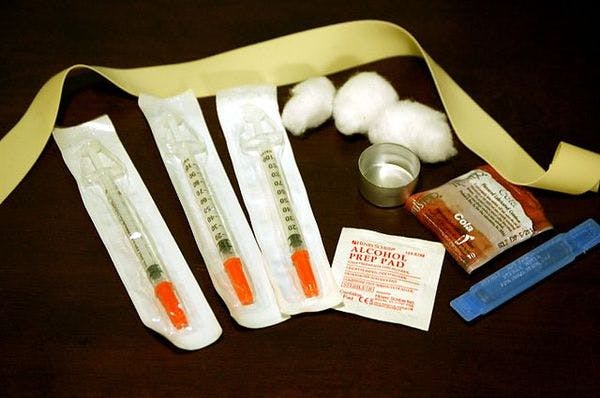Wikimedia Commons - Todd Huffman - CC BY 2.0
Punishment-led drug policies compound pandemic devastation
Over 250 groups call on the international community to protect the health and human rights of people who use drugs in the time of COVID-19
London, 7 April 2020 – In a joint statement released today, the International Network of People Who use Drugs, the International Drug Policy Consortium, Harm Reduction International, and over 250 community and civil society organisations from all over the world, warn that punishment-led drug policies are compounding the health, economic and social impact of the COVID-19 pandemic. Unless the international community ensures that the health and rights of people who use drugs are protected, the devastation will be unprecedented.
COVID-19 infection does not discriminate, but magnifies existing social, economic and political inequities. Global efforts to delay and contain the spread of COVID-19 will fail if the health of marginalised and vulnerable communities is not protected as an urgent priority. As a result of stigma and criminalisation people who use drugs face extraordinary barriers to accessing health care, and experience or endure higher rates of poverty, unemployment and homelessness as well as underlying health conditions.
The so-called ‘war on drugs’ has driven mass incarceration all over the world. According to the UN, at least 470,000 persons are incarcerated worldwide for drug use and possession only, while an additional 1.7 million people are incarcerated for other drug offences, many of which are non-violent. In the context of COVID-19 the public health dangers of overcrowding in prison and detention facilities are brought into sharp relief.
Judy Chang, Executive Director of the International Network of People Who Use Drugs, said: ‘COVID-19 lays bare the failures of the ‘war on drugs’. Over-incarceration, the lack of investment in harm reduction and other life-saving drug services, and the criminalisation of people who use drugs are all drivers of COVID-19 infection. This is the time to make changes to repair a broken system.’
To reduce the spread of COVID-19, some governments have moved to release inmates to alleviate prison overcrowding. Such bold measures must be supported and encouraged by the international community, including calling for the release of all persons detained for non-violent drug activities, and deprioritising law enforcement to prevent the saturation of drug markets with potent synthetic drugs.
‘As governments scramble to respond to the pandemic, they are looking to the UN and international donors for guidance and resources. The international community must address the specific needs of people who use drugs in their public statements, policy recommendations, and financial mechanisms to ensure that health and harm reduction services are not deprioritised’, said Naomi Burke-Shyne, Executive Director of Harm Reduction International.
Ann Fordham, Executive Director of the International Drug Policy Consortium concluded, ‘We have long known that criminalising and punishing people for using drugs exacerbates vulnerabilities and undermines health outcomes. The COVID-19 crisis makes this untenable. The emergency measures of reducing prison populations and deprioritising damaging drug enforcement practices must remain in place for the long term when the pandemic is brought under control’.
***
FOR FURTHER INFORMATION, PLEASE CONTACT:
Jake Agliata
jakeagliata@inpud.net
Communications Officer
INPUD - International Network of People who Use Drugs
Juan Fernandez Ochoa
jfernandez@idpc.net
Communications Officer
IDPC - International Drug Policy Consortium
Suchitra Rajagopalan
suchitra.rajagopalan@hri.global
Communications Officer
HRI – Harm Reduction International
